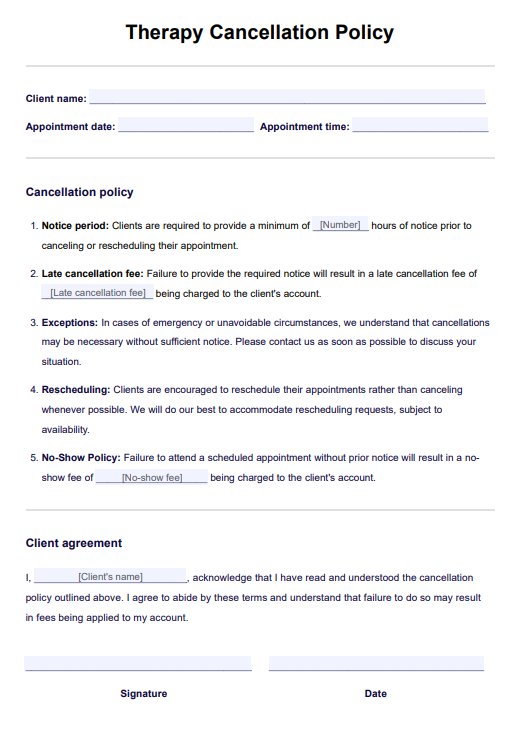A cancellation policy ensures fair compensation for therapists' time and fosters accountability and commitment from clients.

Learn the importance of a clear cancellation policy that benefits both therapists and clients! This guide provides a template, explores key elements, and more.
A cancellation policy ensures fair compensation for therapists' time and fosters accountability and commitment from clients.
The standard notice period is 24-48 hours, but you can adjust it based on your needs.
This is at your discretion. However, charging a fee can help deter late cancellations and missed appointments.
EHR and practice management software
*No credit card required
Free
$0/usd
Unlimited clients
Telehealth
1GB of storage
Client portal text
Automated billing and online payments